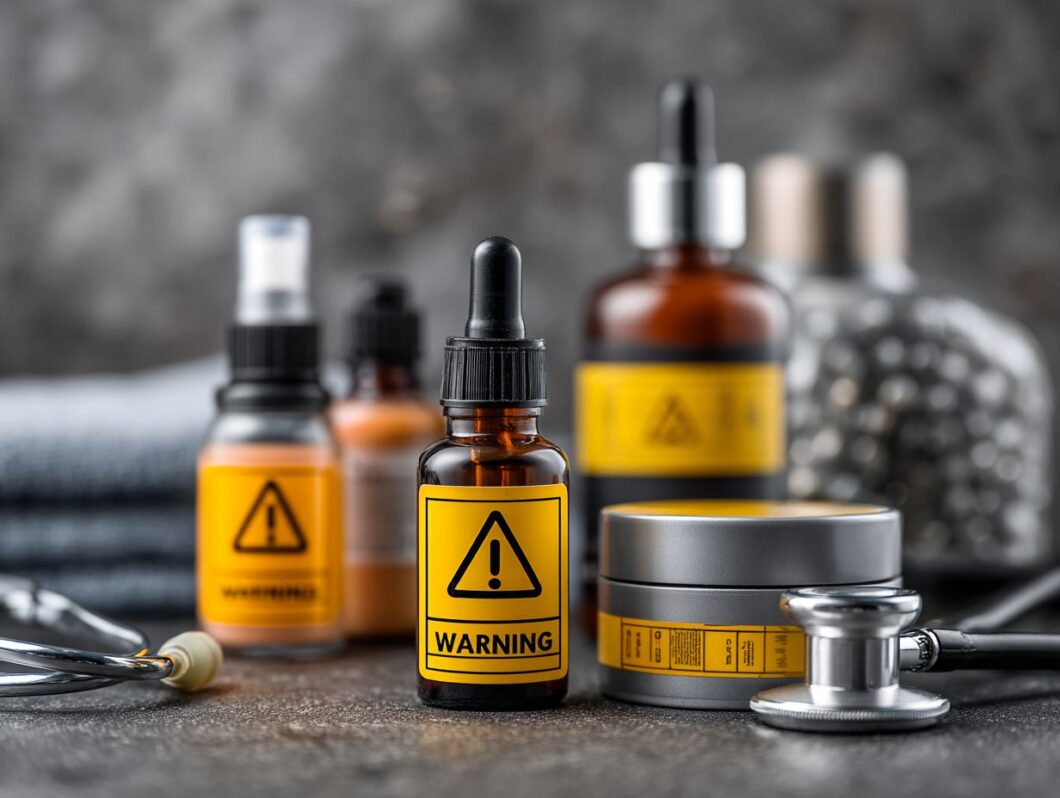In the ever-evolving world of skincare, social media platforms like TikTok, TikTok trends have birthed a wave of viral trends that promise anti-aging miracles and youthful appearance. However, experts like Dr. Molly Hales, along with influencers Ayva Pea and Giselle Pea, caution against these fads due to potential health risks and parents concerns. This article highlights prevalent skincare trends dermatologists advice are warning against, empowering you to make informed choices for a healthier complexion and clear skin. Dive in to protect your skin, well-being, and avoid medical issues!
Key Takeaways:
Common Trends Dermatologists Warn Against
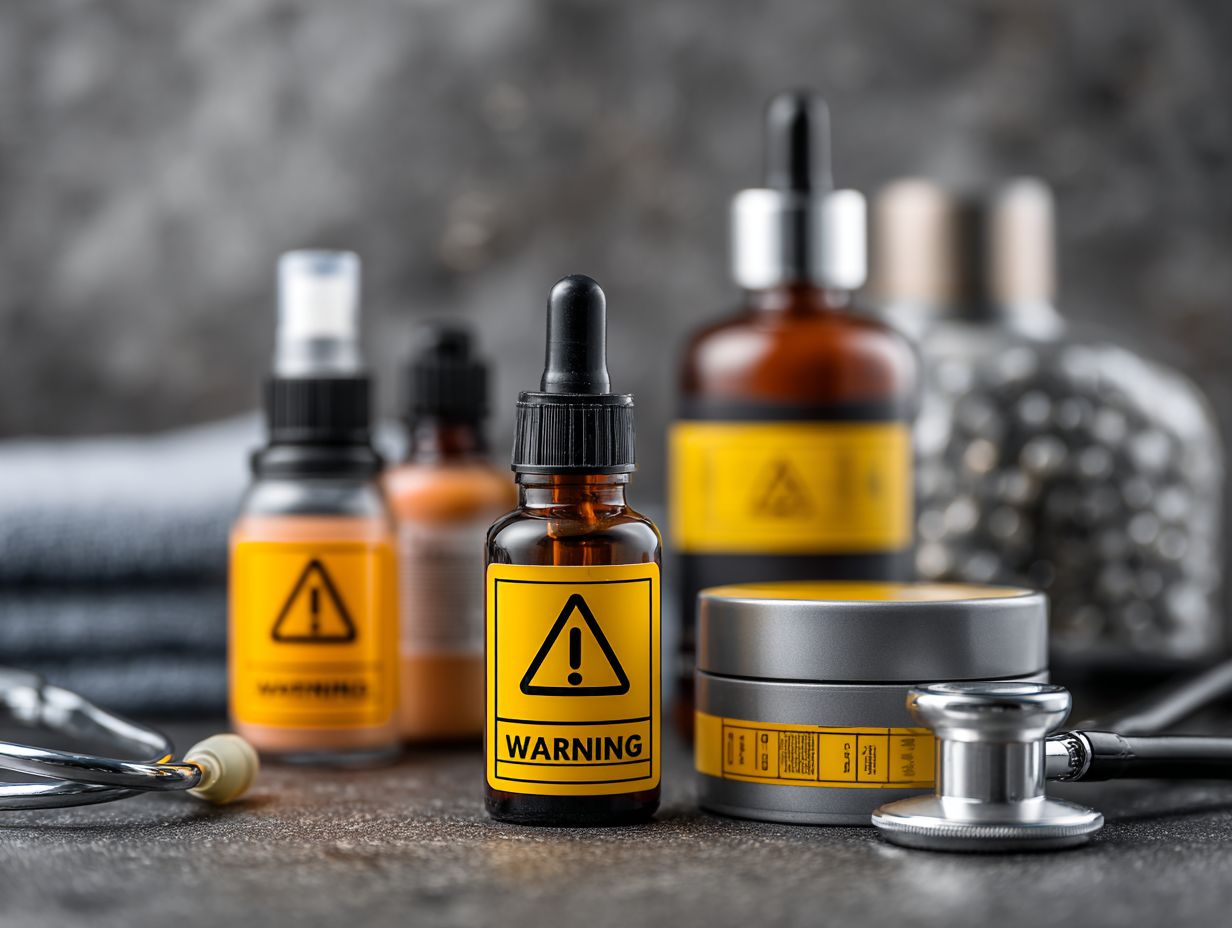
Trending Skincare Hacks
I have identified several popular skincare trends that pose significant health risks, and I aim to guide the skincare community and consumers towards safer practices.
DIY Skincare Remedies
While I find DIY skincare remedies appealing, I recognize that many of them lack scientific backing and may actually worsen skin issues rather than alleviate them. For example, I’ve seen how using lemon juice as a spot treatment can lead to increased skin sensitivity, particularly when exposed to sunlight, raising the risk of further irritation or burns.
Instead, I prefer safer alternatives like essential oils and tea tree oil, diluted at a 1:9 ratio with a carrier oil, which can effectively combat acne and acne treatment while minimizing side effects.
I always make it a point to patch-test new remedies or consult with dermatologists, such as Dr. Molly Hales. They can recommend scientifically supported treatments tailored to my skin type, ensuring a more effective and safer approach to skincare.
Over-exfoliation Practices
I recognize that over-exfoliation through popular trends involving chemical exfoliants can lead to significant skin damage, including increased sensitivity and redness. To mitigate these effects, I limit my use of alpha hydroxy acids and other active ingredients (AHAs) to 1-2 times per week.
I opt for gentle cleanser formulations, such as glycolic acid and chemical peels and Botox at low concentrations (5%-10%), to minimize irritation.
For acne-prone skin, I consider alternatives like salicylic acid and niacinamide and benzoyl peroxide, as it penetrates pores without disrupting the skin barrier as much. Additionally, I incorporate hydrating products containing hyaluronic acid to help restore moisture.
I always follow exfoliation with a soothing moisturizer and ensure I apply daily sunscreen to protect my skin, especially after undergoing chemical treatments.
The Dangers of Influencer Recommendations
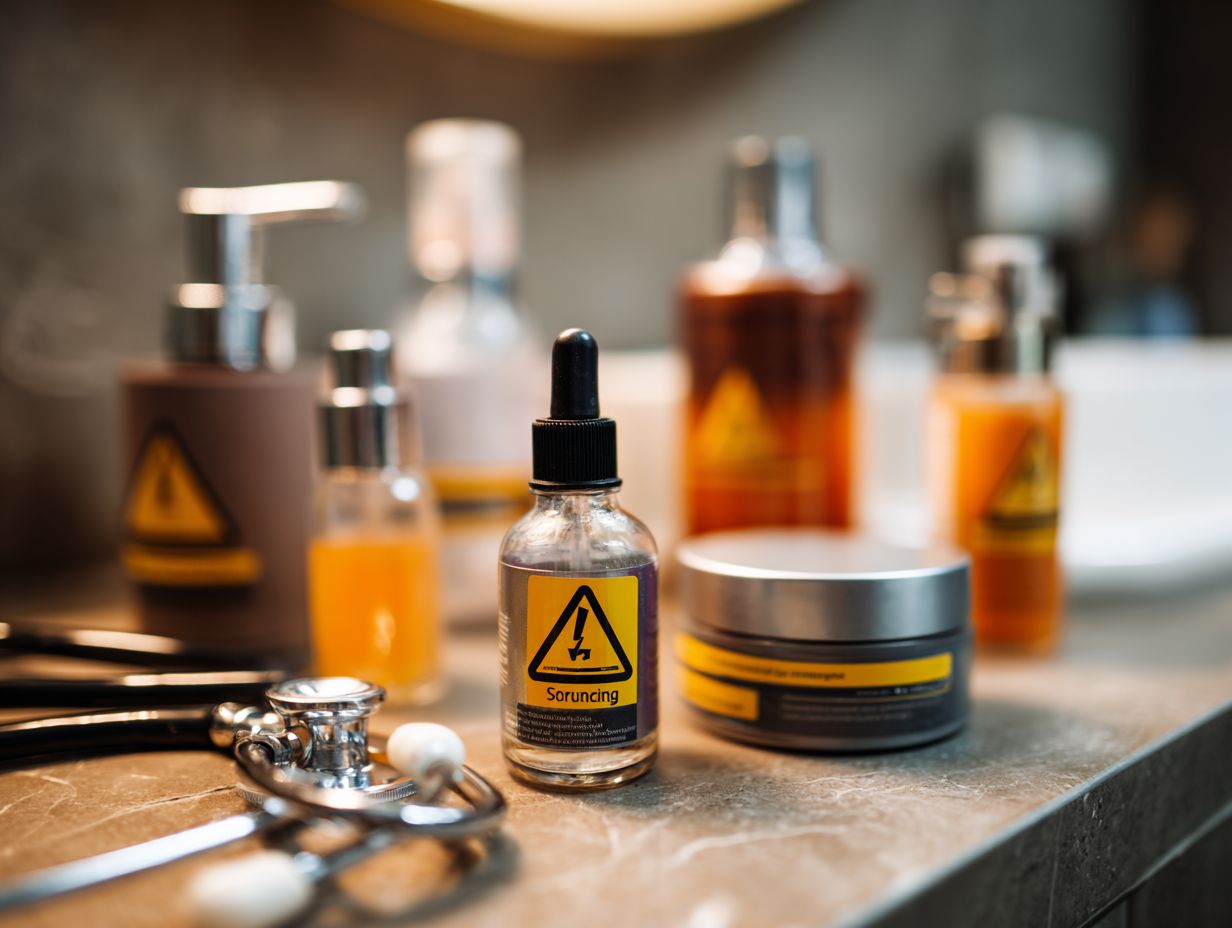
In my dermatology observations, I have observed that the rise of influencer culture and the skincare market have resulted in the spread of misleading skincare recommendations and viral trends, which often do not align with established dermatological best practices.
Lack of Professional Guidance
Many skincare products promoted by influencers often lack the rigorous scrutiny of professional dermatological guidance, which raises concerns regarding their safety and efficacy.
To ensure a safe and effective skincare routine, I always recommend consulting a board-certified dermatologist for dermatology practices. They can provide tailored recommendations based on your unique skin type and specific concerns, offering insights that go well beyond what influencers might suggest.
For instance, if I have sensitive skin, a dermatologist would likely recommend gentle, fragrance-free products. They tend to rely on established dermo-cosmetic brands that have undergone extensive testing, which is essential for maintaining skin health and addressing skin problems.
Additionally, I advise requesting a patch test before trying new products to identify any potential reactions, ensuring a more cautious approach to skincare.
Misleading Claims, Marketing, and Product Costs
Misleading marketing claims often exaggerate the benefits of skincare products, which can lead to confusion and potential harm for consumers. To address this issue, I find it essential to utilize tools like INCI Decoder, which provides a detailed breakdown of product ingredients. By simply entering a product name, I can easily identify potentially harmful additives or misrepresented benefits.
Additionally, researching clinical studies related to specific ingredients offers valuable insights into their effectiveness. For instance, understanding the differences between salicylic acid and benzoyl peroxide can significantly influence acne treatment decisions.
By engaging in these practices, I enable myself as a consumer of skincare products, ensuring that my decisions are informed by evidence rather than marketing hype.
Popular Ingredients Under Scrutiny
I recognize that certain trending skincare ingredients, despite their popularity, have raised health concerns regarding their safety and long-term effects on skin health.
Activated Charcoal
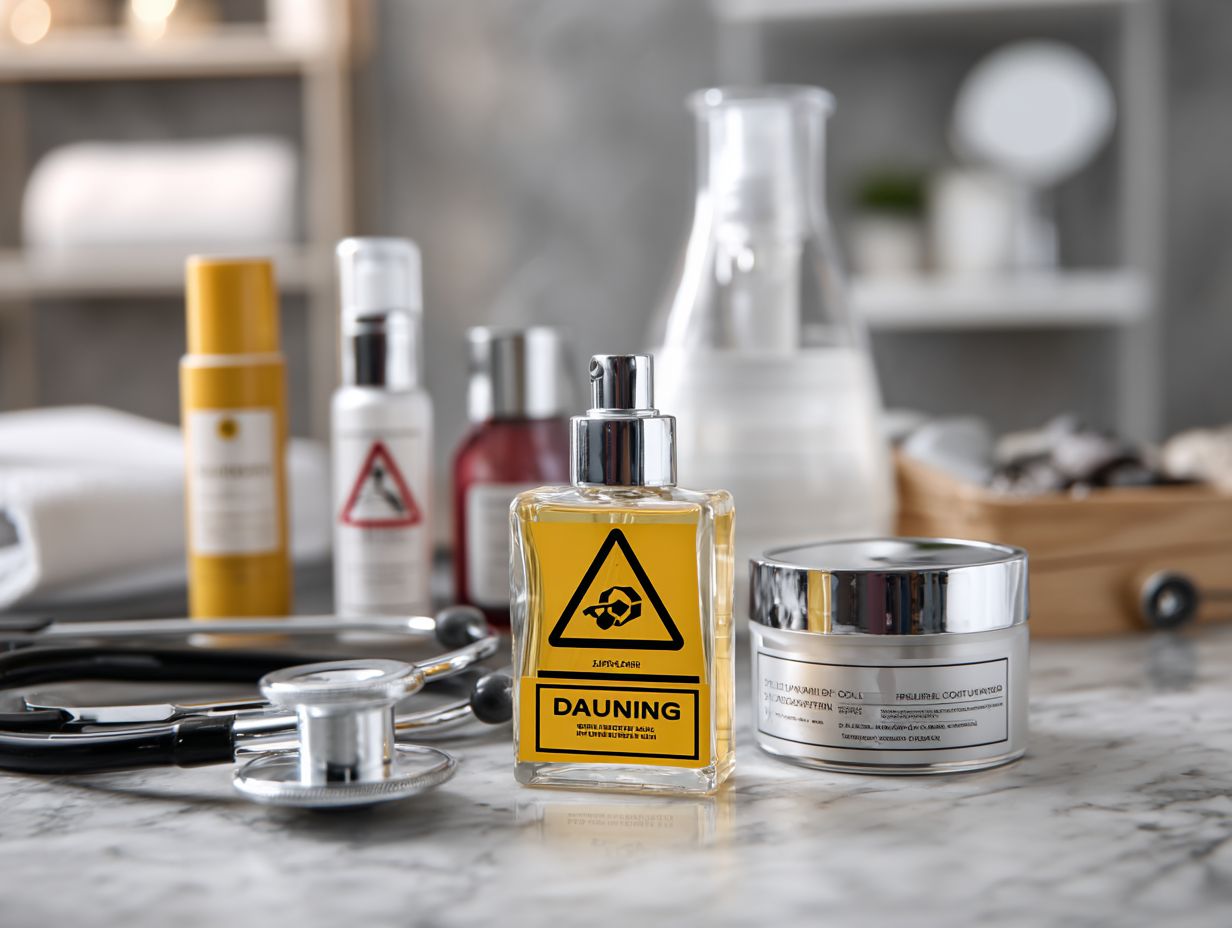
I have observed that activated charcoal has become quite popular in skincare circles; however, its effectiveness for treating acne remains a topic of debate among dermatologists.
Research indicates that while activated charcoal can absorb toxins and impurities, there is a lack of substantial clinical evidence supporting its specific use for acne treatment. Experts recommend alternatives such as:
- Benzoyl peroxide, which is well-known for its antibacterial properties.
- Salicylic acid, which aids in exfoliating and unclogging pores.
Both of these options are supported by studies that demonstrate their effectiveness in reducing acne lesions. I find that incorporating these treatments into a skincare routine can yield significantly better results in beauty routines than relying solely on activated charcoal, particularly when used consistently alongside a gentle cleansing regimen.
Retinol Misuse
Misuse of retinol, often resulting from insufficient guidance, can lead to unintended side effects such as irritation and peeling, ultimately undermining its anti-aging benefits.
To safely incorporate retinol into my skincare routine, I start with a low concentration of 0.25% to 0.5% and apply it every third night. After two to four weeks, I gradually increase the frequency to every other night, carefully monitoring my skin’s tolerance.
I always perform a patch test on a small area first and consult with a dermatologist for personalized advice. Additionally, I make it a point to use a broad-spectrum sunscreen daily, as retinol can increase sun sensitivity. This approach helps me maximize the benefits of retinol while minimizing any potential adverse effects.
Understanding Skin Types and Needs
Understanding individual skin types is essential for selecting appropriate skincare philosophy skincare products for skin types, as incorrect choices can worsen existing skin issues. There are four primary skin types: oily, dry, combination, and sensitive.
-
For oily skin, I recommend using a gel-based cleanser and an oil-free moisturizer, such as Neutrogena’s Hydro Boost.
-
Those with dry skin should consider a creamy cleanser paired with a heavier moisturizer, like CeraVe’s Moisturizing Cream.
-
Regarding combination skin, a balanced approach is necessary, involving gentle, non-comedogenic products.
-
Meanwhile, individuals with sensitive skin will benefit from fragrance-free formulations and skincare tips, such as Vanicream.
For a more personalized assessment, I suggest taking a skin type quiz available on various skincare websites. This can provide valuable insights into identifying your skin’s unique needs.
Frequently Asked Questions
What are some popular viral skincare trends that dermatologists are warning against?
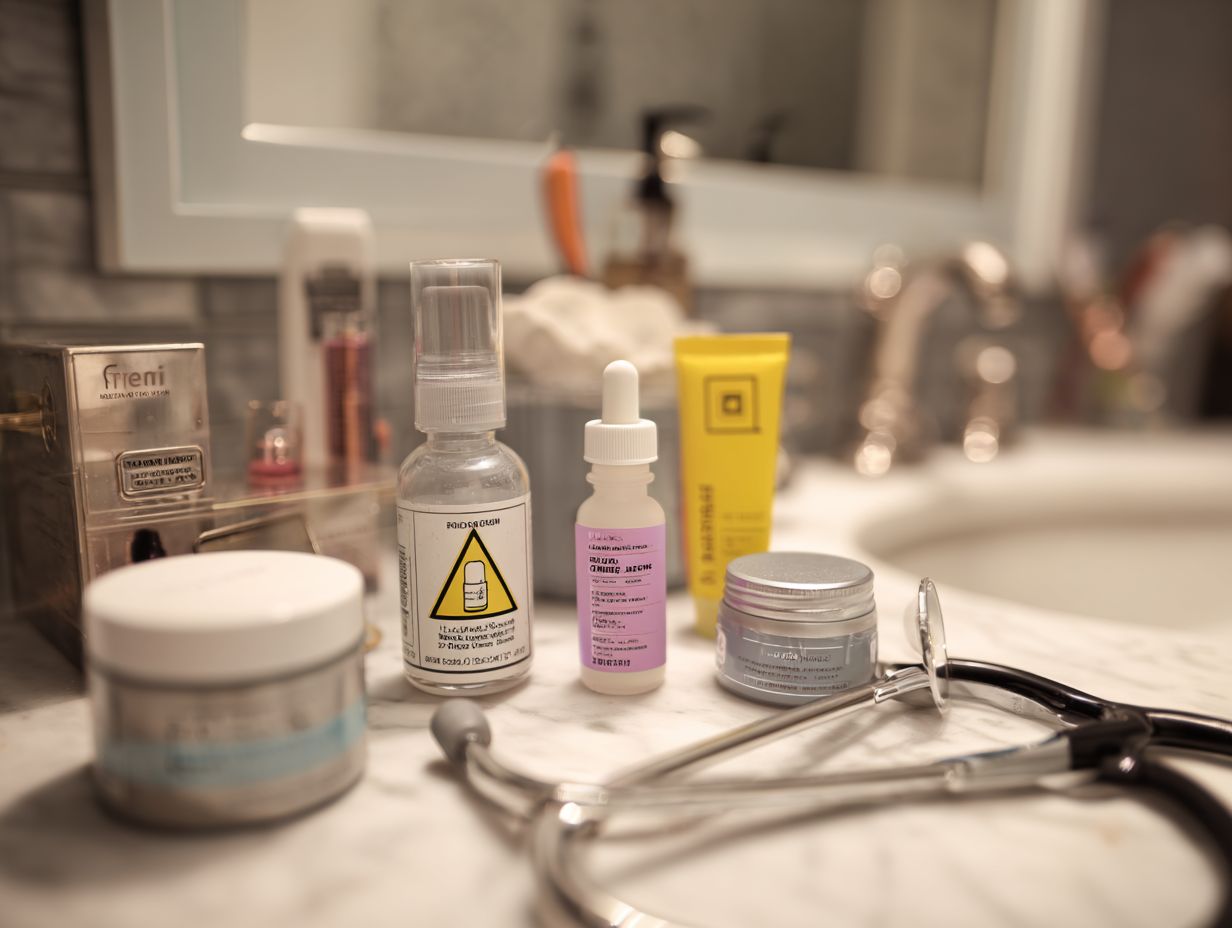
Some popular viral skincare trends that dermatologists are warning against include using lemon juice as a facial toner, washing your face with baking soda, and using DIY charcoal masks.
Why are these skincare trends concerning for dermatologists?
These skincare trends can be damaging for the skin as they can cause irritation, pH imbalances, and clogged pores, leading to breakouts and other skin issues.
Is it safe to use lemon juice as a facial toner?
No, dermatologists advice do not recommend using lemon juice as a facial toner as it is highly acidic and can cause chemical burns, especially for those with sensitive skin.
What are the risks of washing your face with baking soda?
Washing your face with baking soda can disrupt the skin’s natural pH balance and strip the skin of its protective oils, leading to dryness and irritation. It can also cause micro-tears in the skin, leading to increased skin sensitivity, making it more vulnerable to bacteria and infection.
Can DIY charcoal masks be harmful for the skin?
Yes, DIY charcoal masks can be harmful for the skin as they often contain harsh and abrasive ingredients that can damage the skin’s protective barrier and cause inflammation. They can also pull out essential oils from the skin, leaving it dry and irritated.
What are some safer alternatives to these viral skincare trends?
Dermatologists recommend sticking to a simple and gentle skincare routine or skincare methods using products specifically formulated for the face. This includes using a pH-balanced facial cleanser, a moisturizer suitable for your skin type, and a sunscreen, as part of daily regimens with at least SPF 30. It’s also important to consult with a dermatologist before trying any new skincare trends or skincare hacks.


